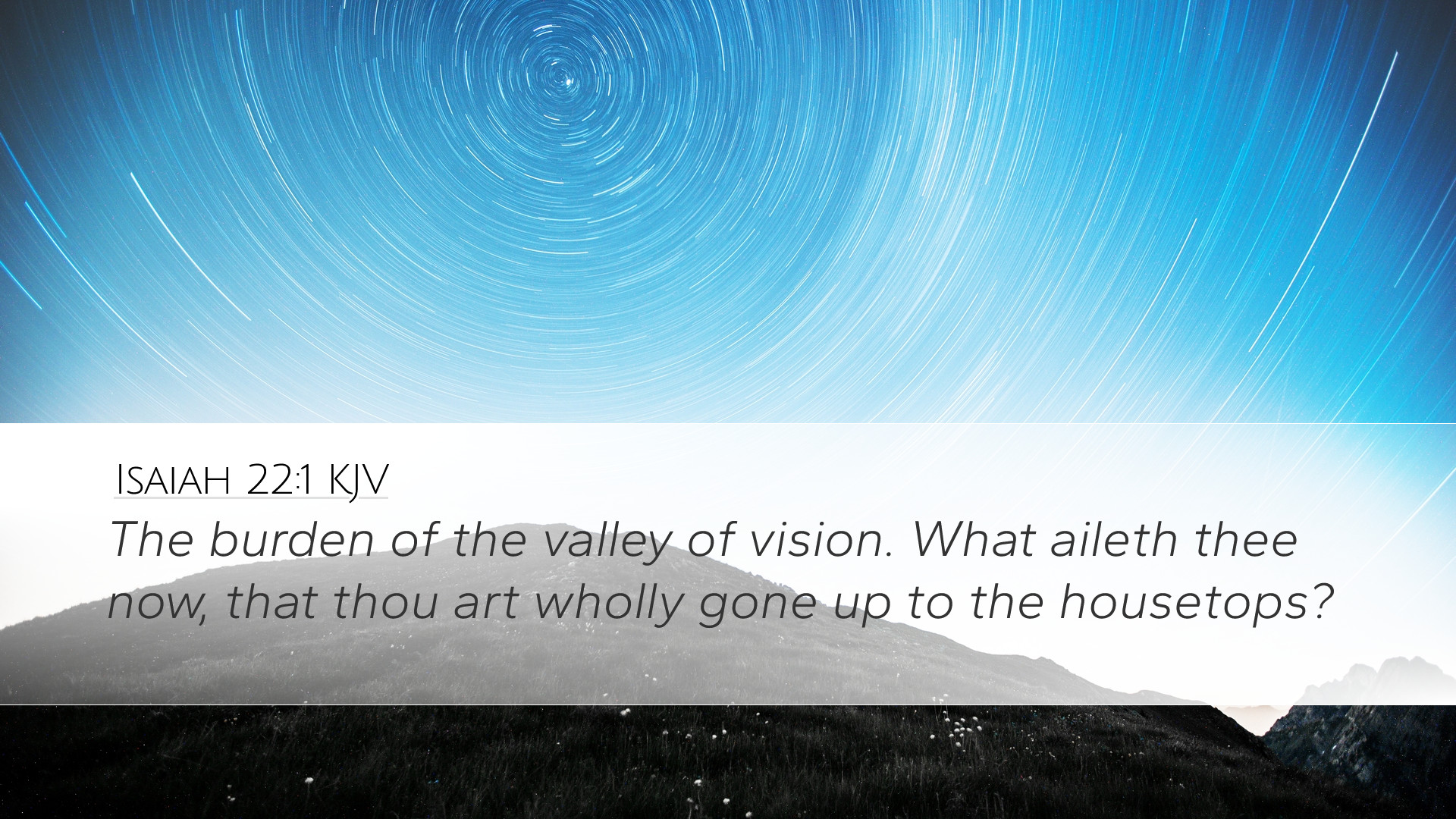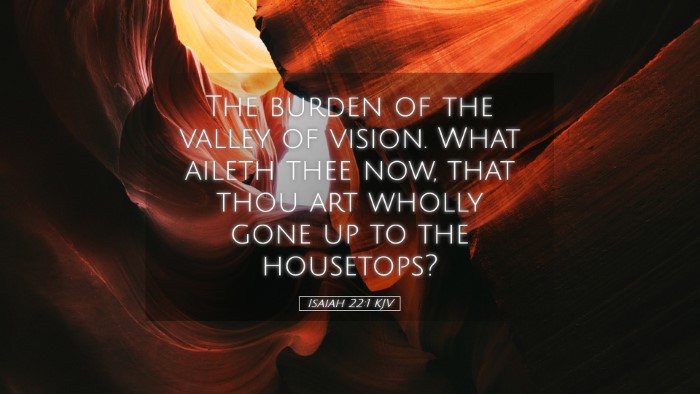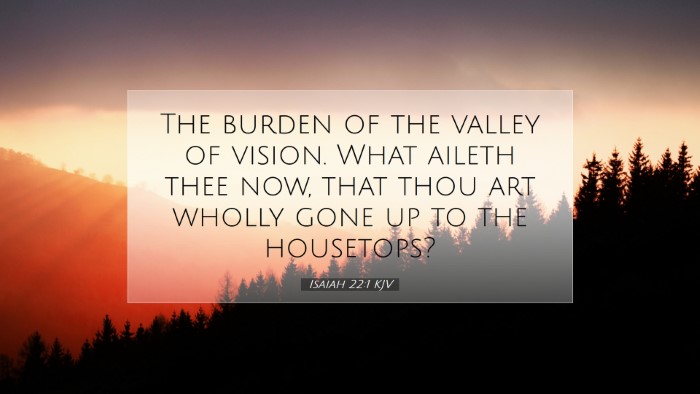Isaiah 22:1 - Commentary Summary
Text of Isaiah 22:1 (ESV): "The oracle concerning the Valley of Vision. What do you mean that you have gone up, all of you, to the housetops?"
Introduction
The verse from Isaiah 22:1 serves as an introduction to a series of prophecies concerning Jerusalem and its impending judgment. This commentary draws upon the insights of renowned public domain commentaries, including those by Matthew Henry, Albert Barnes, and Adam Clarke, to provide a deeper understanding of this passage and its implications for both the ancient audience and contemporary readers.
Contextual Background
The prophetic words of Isaiah emerge during a time of significant turmoil for Jerusalem. Isaiah is called to prophesy about the impending doom that will come upon the city due to its rebellion and lack of repentance. This particular verse introduces the "Valley of Vision," a term that may refer to Jerusalem, emphasizing the city's unique spiritual and prophetic insight as well as its impending judgment.
Matthew Henry's Insights
Matthew Henry points out that the "Valley of Vision" may symbolically represent both the privilege of insight granted to the inhabitants of Jerusalem and the tragic irony of their spiritual blindness. Henry emphasizes that despite being chosen by God, the people engaged in behaviors that led to divine displeasure. The mention of "housetops" can be seen as a metaphor for the pride and complacency of the people, reflecting their misguided confidence and superficial relationship with God.
Albert Barnes' Interpretation
Albert Barnes elaborates on the geographical and theological nuances of the passage. He postulates that the "Valley of Vision" suggests both a literal and metaphorical aspect of Jerusalem, highlighting its role as a place of prophetic revelations. Barnes expounds upon the phrase "What do you mean?" indicating a divine inquiry into the actions of the people, which serves to challenge their misplaced trust in their fortifications and military strength rather than in God. He suggests that the act of going up to the housetops signifies a gathering of the people in panic, illustrating their desperate attempts to survey the siege and helplessness.
Adam Clarke's Analysis
Adam Clarke approaches this verse with a firm focus on the prophetic nature of Isaiah's message. He discusses the term "oracle," which signifies a weighty and authoritative prophetic utterance. Clarke also analyzes the social and religious climate of Jerusalem at the time, suggesting that the people's perched positions on the rooftops reveal an acute awareness of their vulnerability. Clarke emphasizes the need for introspection and repentance as the key elements missing in their response to the challenges they faced.
Theological Implications
This prophetic oracle poses several critical questions for today’s readers, particularly for pastors, students, theologians, and Bible scholars. It invites reflection on the nature of spiritual vision, the condition of the heart, and the actions that reflect one’s true faith. The idea that the people of Jerusalem had access to divine insight yet chose to live contrary to it serves as a profound cautionary tale about the perils of complacency.
Lessons for Contemporary Believers
- Spiritual Awareness: Just as Jerusalem was called to reflect on its spiritual state, modern believers are encouraged to examine their own lives in light of God’s truth.
- True Trust in God: The reliance on military strength or societal structures rather than total dependence on God is a timeless lesson that resonates through generations.
- Call to Repentance: The oracle’s emphasis on the need for repentance echoes throughout scripture, reminding believers of the necessity of turning back to God for restoration.
Conclusion
The oracle contained in Isaiah 22:1 serves as a multifaceted message about divine insight, human folly, and the need for humility before God. The contributions from Matthew Henry, Albert Barnes, and Adam Clarke allow for a richer understanding of the text, offering historical context and spiritual application suitable for diverse audiences within the Christian community.
As we engage with Isaiah's words, may we be inspired to seek deeper spiritual vision and to live in accordance with the heart of God, avoiding the pitfalls faced by the inhabitants of the Valley of Vision.


